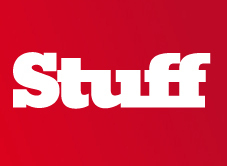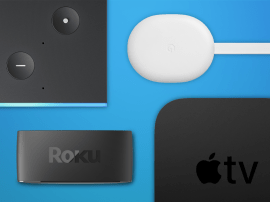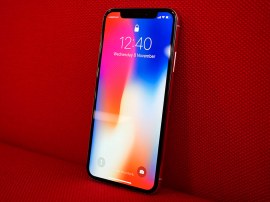The day the downloaded music died: why did Apple approve Spotify’s iPhone killer?
I didn't believe Apple would approve the Spotify iPhone app. Not for one moment. Apple has jealously protected the built-in functions of the iPhone –

I didn’t believe Apple would approve the Spotify iPhone app. Not for one moment. Apple has jealously protected the built-in functions of the iPhone – hence the Google Talk controversy. So why has it approved an application that will shake the foundations of the iPhone/iTunes eco-system?
The ability to access Spotify through your iPhone and buffer songs for those times when streaming just won’t work (when 3G or WiFi are non-existent) is the service’s killer feature. It’s the ability it needs to convert those people who just can’t bring themselves to pay for the £10 premium subscription with just a PC tethered service.
Apple just gave Spotify its first leg up towards true dominance of music consumption. But in the process it may have effectively taken iTunes out into the yard and put a bullet in its brain. While occasional consumers of music, the people who pop on to iTunes to pick up the odd single they like, will still not be convinced by a £10/month outlay, serious music fans will find it hard to resist all-you-can-eat, wherever-you-go music.
Steve Jobs and the Apple leadership team are some of the shrewdest business brains in the world. They would not have given Spotify this gift without asking for something in return. So what have they got out of the bargain? Well, there’s a few possible motivations for the Cupertino Mafia bringing Spotify into the fold:
One: Apple has done a deal with Spotify to take a cut. Apple receives a percentage of all app sales in the store but Spotify’s application will be free. So Apple will have had to negotiate Spotify into some kind of fairly complicated revenue sharing deal that takes in to account the reach and power of the iPhone as a platform for applications. This option drags another firm in to the fray – 7Digital is Spotify’s current download partner but those ties are bound to be frayed by a close alliance with the iTunes juggernaut.
Daniel Ek, Spotify’s head honcho, said on Twitter: “We’re happy but have had a great dialogue with Apple all the way. They’ve been great!” Either he’s happy that Apple agreed fairly pleasant terms on the deal or they didn’t impose serious conditions on Spotify at all. If it’s the latter, why would Apple allow Spotify into the bosom of its hero device?
Apple has taken a bruising recently over the US controversy where it refused to approve Google’s Voice app because it felt it replicated the iPhone’s own phone and voicemail features. Though the waters are muddied by the fact that Apple can point to Google’s web version of the service working on the iPhone, the US regulators at the FCC are involved and it’s a tricky legal tangle.
By allowing Spotify on to the iPhone – especially after Spotify effectively blackmailed Apple by establishing public demand with a clever preview campaign – Apple could simply be trying to damp down charges of anti-competitiveness. Rumours of Apple working on a brand new way of bundling content in the iTunes store and the revelation that it has purchased a vast new data centre – perfect for cloud computing – could mean that iTunes itself will go to the cloud, creating a personalised and highly mobile music library.
If Apple creates a service that will put the music you’ve already purchased into the cloud, coupled with streaming options and luxurious new download packages with custom content, it could create a compelling Spotify competitor. Building its services to be more integrated in to the iPhone’s hardware platform, it would capitalise both on the laziness of iPhone adopters and the reverence shown towards it by the Apple fanboy contingent.
Then there’s the possibility that Apple is simply aware that if it does not welcome Spotify into its world, competitors will. Google Android is establishing a compelling open source app infrastructure and rumours suggest Facebook is seriously interest in Spotify. Apple could be protecting itself by getting in a preemptive strike. Spotify is likely to still turn up on other devices (an Android app is already in the works) but it will not become a killer feature to tempt people away from iPhone.
Finally there’s a more way-out possibility: Apple plans to invest in Spotify. Li Ka-Shing, the owner of both the 3 mobile network and INQ, the social media mobile creators, recently invested in Spotify. His stake follows a similar investment in Facebook prompting suggestions that a tie-up between the social network and Spotify could be on the cards.
Could Apple have also seen the potential in the smaller firm and sought to neutralise the threat by taking its own piece of the pie? It’s not impossible but financial statements would reveal these moves and, as a public company, Apple would have to announce this course of action if it took it.
Another interesting element to throw in to the “Paul Is Dead” style conspiracy theory tying Facebook and Spotify together is the suggestions that the next version of iTunes, iTunes 9, will feature a raft of social networking features.
Is it too wild to imagine a time when iTunes, Facebook and Spotify are integrated to form a social web that ties your media consumption and social lives together? And wouldn’t the fabled Apple Mac Tablet be the perfect kind of device to make that experience work?
Spotify is not perfect and it will not simply do away with the need to own music that many people still have. It’s also by no means exhaustive despite its vast catalogue. Its coverage of marginal genres is poor, it needs to make new bands feel more confident that they will be compensated and it has to draw in the dinosaur holdouts that so far have refused to join the digital age.
But the problem has troubled iTunes (just look at the repeated rumours that the Beatles will finally come on board at a September 9 event). Yet the old rockers are starting to move with the times. Zeppelin’s Robert Plant recently told Stuff’s sister publication What Hi-Fi: Ultimate Guides that he wants his music on Spotify.
Spotify on the iPhone is fantastic news for music fans. But don’t be fooled in to thinking that it must be terrible news for Apple – the capitulation of a firm forced into action by public opinion or fear of government regulators. Steve Jobs remains the great maverick of American business and he will not have let Spotify into Camelot without concessions or a long term game plan. It may not even be that long term. Roll on September.



